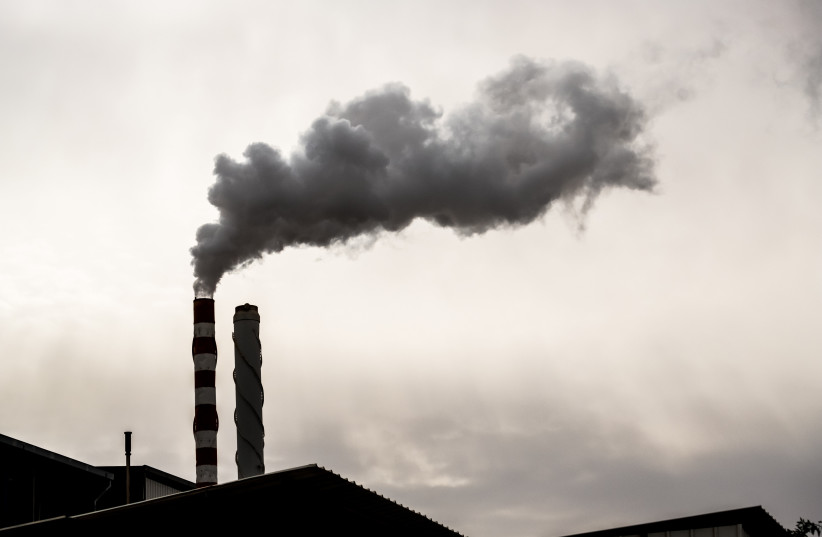Israel’s carbon emissions have fallen since 2015, but changes are not being made fast enough.
By JERUSALEM POST STAFF MARCH 1, 2023

(photo credit: CEO OF THE NATURE AND PARKS AUTHORITY SHAUL GOLDSTEIN)
Despite efforts to move towards more eco-friendly energy sources, Israel’s economy remains reliant on fossil fuels, Israel’s Environment Protection Ministry said in a report submitted to the United Nations on Tuesd
“Despite encouraging data, which indicate the beginning of a trend of decreasing emissions in the Israeli economy, it is still dependent on polluting fuels, and the road to achieving the climate goals and ensuring the competitiveness of the economy in a zero-emissions world is long,” Environmental Protection Minister Idit Silman said at a UN climate conference where the report was shared.
“Despite encouraging data, which indicate the beginning of a trend of decreasing emissions in the Israeli economy, it is still dependent on polluting fuels, and the road to achieving the climate goals and ensuring the competitiveness of the economy in a zero-emissions world is long.”Idit Silman
“The government must accelerate the actions to wean the economy fossil fuels through a transition to renewable energies and efficient, electric and clean transportation,” Silman continued.
Silman also announced that 2023 would be the last year that Israel would attend the conference under the category of “developing country” – an indication that Israel’s climate expectations will be increased in future years.
The United Nations will send representatives to visit Israel and further examine the details of the report.
The unrecognized villages around Ramat Hovav which suffer from a high level of air pollution from nearby evaporation ponds of the chemicals and the IEC power plant. December 28, 2017 (credit: YANIV NADAV/FLASH90)
What is the state of Israeli carbon emissions?
The report details how Israeli carbon emissions decreased in 2021, as they did in 2020, showing a positive trend.
In 2015, 79 million tons of greenhouse gases were emitted. In 2021, 76.6 tons were admitted. This shows significant environmental improvements that were made during a time of economic and population growth.
Despite the positive trend, the report also details Israel’s continual dependence on fossil fuels.
Similarly, Israel did not meet its 2020 target of 10% of electricity being harvested from renewable sources, like solar energy, until 2022.
What changes is the Israeli government trying to make?
The government aims to increase solar energy usage by placing solar panels within existing infrastructure. This would also mean increased charging stations for electric vehicles. Renewable energy sources will also be subsidized to help motivate private citizens and companies to make the change.
A goal has been set that coal fire pits, and coal usage, will be shut by 2025.
Plans are also being made to open more recycling centers to reduce the number of gases produced by the breakdown of reusable products.
Transport will also be adjusted. The government plans to invest in new light rail systems and the construction of bicycle paths to promote private citizens to make non-automotive travel choices.
Israel must abide by the Paris Agreement
The Paris Agreement is scheduled to be enacted in 2024 and Israel will need to disclose more details on its environmental performance.
Israel joined the 109 parties, which account for 79% of the world’s emissions, according to the Environmental Protection Ministry.
The agreement hopes to hold countries to a higher standard of transparency and responsibility in the fight against the climate crisis.
“The Paris Agreement not only binds the State of Israel to reduce greenhouse gas emissions like all developed countries, but it is also a tremendous opportunity for the growth of the Israeli cleantech sector, providing new technological solutions in the field of environmental protection and coping with climate change for the whole world,” former environmental protection minister Ze’ev Elkin said.
Sharon Udasin contributed to this report.
https://www.jpost.com/environment-and-climate-change/article-733024

